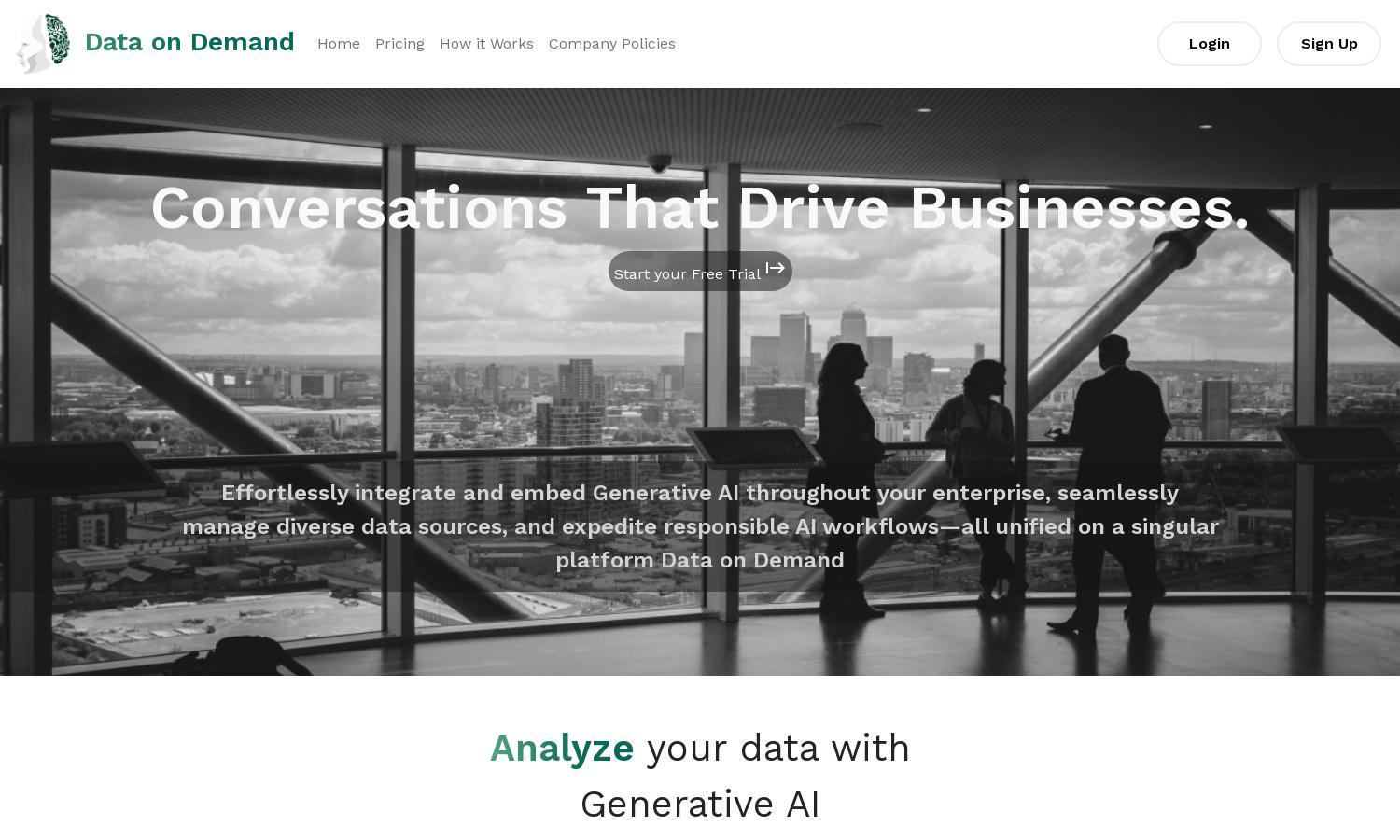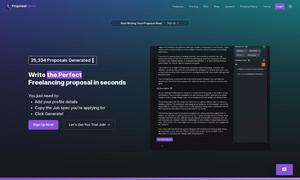Data on Demand

About Data on Demand
Data on Demand is designed for businesses seeking efficient data insights. By utilizing advanced generative AI, it simplifies data analysis, enabling swift decision-making. Users can easily initiate conversations to extract actionable insights from diverse sources, ultimately optimizing their operations and driving business growth.
Data on Demand offers flexible pricing tiers to accommodate various business needs. Users can choose from basic subscription options to premium plans with advanced capabilities. Upgrading provides additional features, enabling companies to access comprehensive data analytics and optimize their business strategies for greater success.
Data on Demand boasts an intuitive user interface designed for seamless navigation. With a user-friendly layout, users can easily access features and functionalities, enhancing their overall experience. This efficient design allows for quick insights and reports, making data management an effortless task for users.
How Data on Demand works
Users interact with Data on Demand by starting a conversation, asking questions, and specifying topics of interest. The platform conducts an in-depth analysis of the input, exploring diverse data sources and establishing relationships across the information. Ultimately, users receive insights in a clear, user-friendly format, streamlining their decision-making process.
Key Features for Data on Demand
Conversational Data Interaction
Conversational Data Interaction is a key feature of Data on Demand, enabling users to ask questions and receive insights effortlessly. This unique functionality streamlines the data analysis process, allowing businesses to derive actionable insights quickly, significantly enhancing productivity and decision-making efficiency.
Real-time Data Insights
Real-time Data Insights is an essential feature of Data on Demand that provides instantaneous data analysis. This functionality allows users to make informed decisions quickly, adapting to business dynamics in real-time. It enhances operational efficiency by enabling proactive planning based on current data trends.
Predictive Analytics
Predictive Analytics is a standout feature of Data on Demand that optimizes business forecasting. By analyzing historical data trends, this functionality assists users in making informed predictions about future performance, helping to minimize risks related to inventory management and resource allocation.
You may also like:








